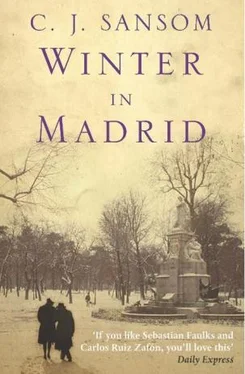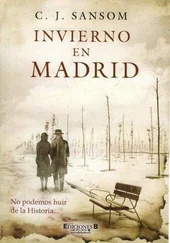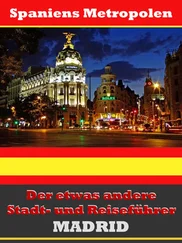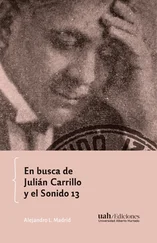He joined the passengers heading for the exit. Dry heat enveloped him as he descended the steps and joined the crocodile crossing the tarmac. The airport building was no more than a low concrete warehouse, the paint flaking away. One of the civiles came across and stood by them. ‘ Por allí, por allí ,’ he snapped officiously, pointing to a door marked ‘ Inmigración ’.
Harry had a diplomatic passport and was waved quickly through, his bags chalked without a glance. He looked round the empty entrance hall. There was a whiff of disinfectant, the sickly smelling stuff they had always used in Spain.
A solitary figure leaning against a pillar reading a newspaper waved and came across.
‘Harry Brett? Simon Tolhurst, from the embassy. How was the flight?’
He was about Harry’s age, tall and fair, with an eager friendly manner. He was built like Harry, solidity turning to fat, although with the embassy man the process had gone further.
‘Fine. Cloudy most of the way, but not too bumpy.’ Harry noticed Tolhurst wore an Eton tie, the bright colours clashing with his white linen jacket.
‘I’ll drive you to the embassy, take about an hour. We don’t use Spanish drivers; they’re all government spies.’ He laughed and lowered his voice, though there was no one around. ‘The way they bend their ears back to listen, you’d think they’re going to meet in the middle. Very obvious.’
Tolhurst led him out into the sun and helped put his case in the back of a highly polished old Ford. The airport was out in the country, fields all around. Harry stood looking over the harsh brown landscape. In a field across the road he saw a peasant leading a couple of skinny oxen, ploughing the stubble in with a wooden plough as his ancestors had in Roman times. In the distance the jumbled peaks of the Guadarrama mountains stood out against the harsh blue sky, shimmering in heat haze. Harry felt sweat prickling at his brow.
‘Hot for October,’ he said.
‘Been a bloody hot summer. They’ve had a dreadful harvest; they’re very worried about the food situation. That may help us, though – makes them less likely to enter the war. We’d better get on. You’ve got an appointment with the ambassador.’
Tolhurst eased out onto a long deserted road flanked by dusty poplars, the leaves yellowing at the tips like giant torches.
‘How long have you been in Spain?’ Harry asked.
‘Four months. Came when they expanded the embassy, sent Sir Sam over. Did a spell in Cuba before. Lot more relaxed. Fun.’ He shook his head. ‘This is one awful country, I’m afraid. You’ve been before, haven’t you?’
‘Before the Civil War, then briefly during it. To Madrid both times.’
Tolhurst shook his head again. ‘It’s a pretty grim place now.’
As they drove over the stony, potholed road they talked about the Blitz, agreeing Hitler had abandoned his invasion plans for now. Tolhurst asked Harry where he had gone to school.
‘Rookwood, eh? Good place, I believe. Those were the days, eh?’ he added wistfully.
Harry smiled sadly. ‘Yes.’
He looked out at the countryside. There was a new emptiness to the landscape. Only the occasional peasant driving a donkey and cart passed them, and once an army truck going north, a group of tiredlooking young soldiers staring vacantly from the back. The villages were empty too. It was siesta time, but in the old days there would have been a few people about. Now even the once ubiquitous skinny dogs had gone and only a few chickens were left foraging round closed doorways. One village square had huge posters of Franco all over the cracked, unpainted walls, his arms folded confidently as his jowly face smiled into the distance. ¡HASTA EL FUTURO! Towards the future. Harry took a deep breath. The posters, Harry saw, covered older ones whose tattered edges were visible beneath. He recognized the bottom half of the old slogan, ¡NO PASARAN! They shall not pass. But they had.
Then they were in the rich northern suburbs. From the look of the elegant houses the Civil War might never have happened. ‘Does the ambassador live out here?’ Harry asked.
‘No, Sir Sam lives in the Castellana.’ Tolhurst laughed. ‘It’s a bit embarrassing, actually. He’s next door to the German ambassador.’
Harry turned, open-mouthed. ‘But we’re at war!’
‘Spain’s “non-belligerent”. But it’s crawling with Germans, the scum are all over the place. The German embassy here’s the largest in the world. We don’t speak to them, of course.’
‘How did the ambassador end up next door to the Germans?’
‘Only big house available. He makes a joke of glaring at von Stohrer over the garden wall.’
They drove on into the town centre. Most of the buildings were unpainted and even more dilapidated than Harry remembered, though once many must have been grand. There were posters everywhere, Franco and the yoke-and-arrows symbol of the Falange. Most people were shabbily dressed, even more than he remembered, many looking thin and tired. Men in overalls with scrawny weather-beaten faces walked by, and women in black shawls, patched and mended. Even the barefoot skinny children playing in the dusty gutters had pinched watchful faces. Harry had half expected to see military parades and Falangist rallies like in the newsreels, but the city was quieter than he had known it, as well as dingier. He saw priests and nuns among the passers-by; they were back, too, like the civiles . The few wealthier-looking men wore jackets and hats despite the heat.
Harry turned to Tolhurst. ‘When I was here in ’37 wearing a jacket and hat on a hot day was illegal. Bourgeois affectation.’
‘You’re not allowed to go out without a jacket now, not if you’re wearing a shirt. Point to remember.’
The trams were running but there were few cars and they weaved their way among donkey carts and bicycles. Harry jerked round in amazement as a familiar shape caught his eye, a hooked black cross.
‘Did you see that? The bloody swastika’s flying beside the Spanish flag on that building!’
Tolhurst nodded. ‘Have to get used to that. It’s not just swastikas – the Germans run the police and the press. Franco makes no secret he wants the Nazis to win. Now, look over there.’
They had stopped at an intersection. Harry noticed a trio of colourfully dressed girls wearing thick make-up. They caught his glance and smiled, turning their heads provocatively.
‘There are tarts everywhere. You have to be very careful, most of them have the clap and some are government spies. Embassy staff aren’t allowed near them.’
A pith-helmeted traffic policeman waved them on. ‘Do you think Franco will come into the war?’ Harry asked.
Tolhurst ran a hand through his yellow hair, making it stick up. ‘God knows. It’s a terrible atmosphere; the newspapers and radio are wildly pro-German. Himmler’s coming on a state visit next week. But you just have to carry on as normal, as much as you can.’ He blew out his cheeks and smiled ruefully. ‘But most people keep a suitcase packed, in case we have to get out in a hurry. Oh, I say, there’s a gasogene!’
He pointed to where a big old Renault was puttering along, slower than the donkey carts. Fixed to the back was what looked like a large squat boiler, clouds of smoke pouring from a little chimney. Pipes led under the car from the thing. The driver, a middle-aged bourgeois, ignored stares from the pavement as people stopped to look. A tram clattered by hooting and he swerved wildly to avoid it, the unwieldy vehicle almost teetering over.
‘What the hell was that?’ Harry asked.
‘Spain’s revolutionary answer to the petrol shortage. Uses coal or wood instead of petrol. OK unless you want to go uphill. The French have them too, I hear. Not much chance of the Germans being after that design.’
Читать дальше












